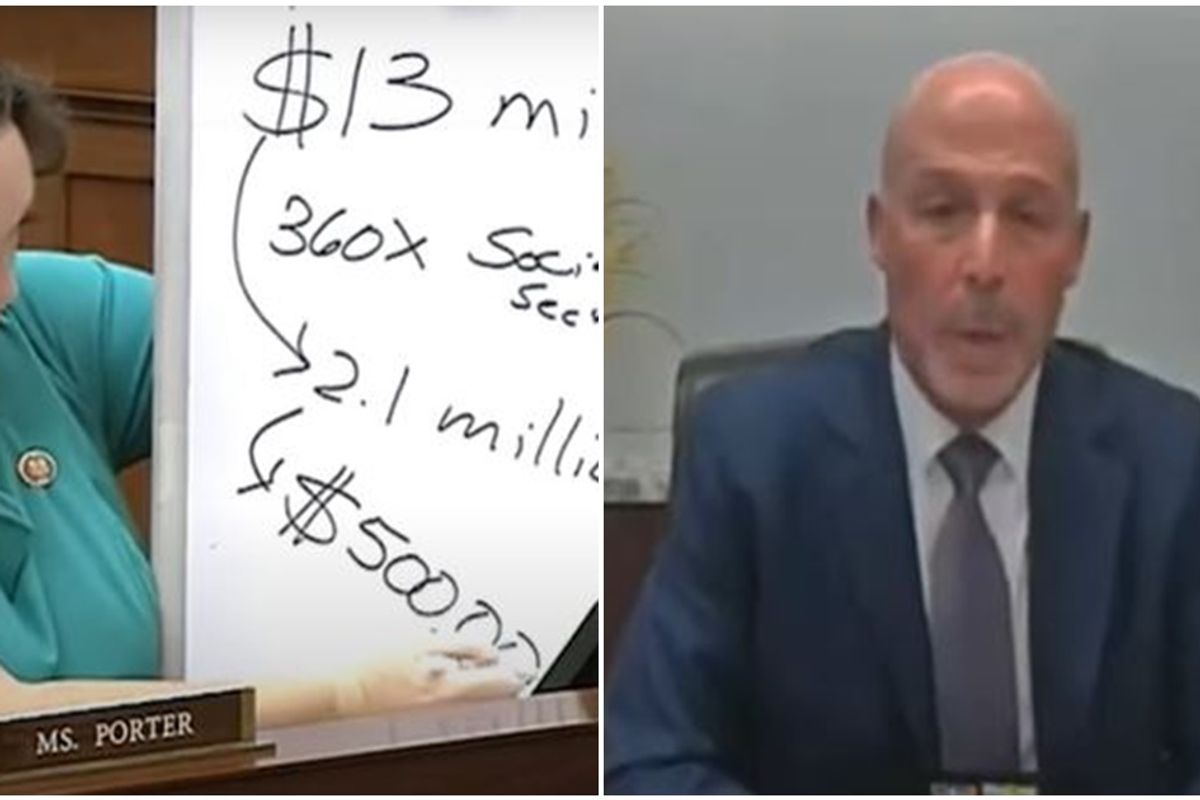
Americans spend about $1,2000 a year on average for prescription drugs. That’s more than anywhere else in the world. Private insurers and government programs pick up the bulk of the costs which we then pay through higher taxes and insurance premiums.
A major reason why Americans pay so much more than other countries is that the U.S government isn’t allowed to negotiate drug prices with pharmaceutical companies.
To better understand the underlying reasons for these astronomical prices, the U.S. House of Representatives Oversight and Reform Committee held hearings on Wednesday with current and former executives of three major drug companies.
Democratic Representative Katie Porter from Orange County, California proved to be the star of the hearing for how she clearly explained how price gouging works using a whiteboard and the testimony of former Celgene CEO Mark Alles.
Celgene launched a cancer drug called Revlimid in 2005 at a price of $215 per pill. After more than 20 price hikes, the drug now costs $763 per pill or $16,023 per month. According to Porter, the price increases have cost American taxpayers over $3 billion.
While drug companies commonly cite research and development costs as a reason for raising prices. An investigation found that the CEO repeatedly raised the price to help the company meet revenue goals.
The investigation also found the company was profiting from a drug that was developed using taxpayer funds. According to the investigation the company “relied heavily on taxpayer-funded academic research to develop Revlimid, and its internal pricing decisions appear to have been unrelated to past or future investment in research and development.”
Rep. Porter grills Big Pharma CEO for price gouging
www.youtube.com
Porter opened her questioning by remarking how Revlimid price increases seem to counter traditional economic logic.
“I’m curious, did the drug get substantially more effective in that time? Did cancer patients need fewer pills?” she asked. “How did you change the formula for the production of Revlimid to justify this price increase?”
Alles responded with a non-answer: “The indication changes are for subsets of different patients with disease.”
She then pushed him again, asking how the drug improved over the past seven years.
He admitted that the manufacturing for the pill was “the same.”
Porter then brilliantly related the price increase to the financial situation of her constituents. “So, to put that in perspective, you hiked the price by $500 when the average Orange County senior only has $528 left in their bank account after they’ve paid their basic monthly expenses,” Porter said.
While the CEO claimed that no one pays the list price, she asked about uninsured people. He said he could “imagine” that there were uninsured or underinsured people who have probably paid the list price.
 via Katie Porter
via Katie Porter
Porter finished her presentation by tying the price increases to Alles’ paycheck. As CEO, Alles made $13 million a year, 360 times the average person on social security.
“Any increase in the price of Revlimid would also increase your bonus by increasing earnings. Isn’t that right Mr. Alles? she asked. “That was a part of the calculation of my compensation.” the CEO agreed.
Porter then showed how the CEO has made $500,000 over the past two years in bonuses by raising the price of the cancer drug.
“So to recap here: The drug didn’t get any better. The cancer patients didn’t get any better. You just got better at making money. You just refined your skills at price gouging!” she stated.

